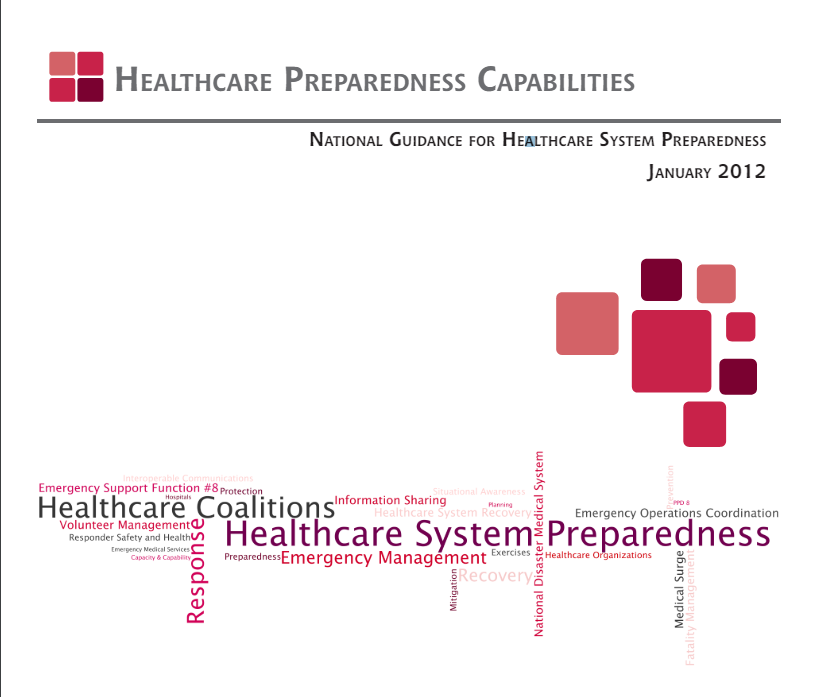
Background and History
The threat of Mass Casualty Incidents (MCIs) or Medical Surges to the Nation’s hospital and healthcare system has always been present. For many trauma systems and emergency departments, it is simply part of normal day-to-day operations. Preparing hospitals, healthcare systems and their ESF #8 partners to prevent, respond to, and rapidly recover from these threats is critical for protecting and securing our Nation’s healthcare system and public health infrastructure.
The 2009 H1N1 influenza pandemic and Hurricane Katrina highlighted the importance of hospitals and healthcare systems being
prepared for potential threats and the consequences that occur when a community is ill-prepared. The Office of the Assistant Secretary for Preparedness and Response (ASPR) plays a leading role in ensuring the healthcare systems in the Nation are prepared to respond to these threats and other incidents. Through the Hospital Preparedness Program (HPP) Cooperative Agreement, ASPR provides funding
and technical assistance to state, local and territorial public health departments to prepare the healthcare systems for disasters. The HPP Cooperative Agreement funding provides approximately $350 million annually to 50 states, four localities, and eight U.S. territories and freely associated states for building and strengthening their abilities to respond to incidents.
Click here to read the full ASPR National Guidance for Healthcare System Preparedness.
